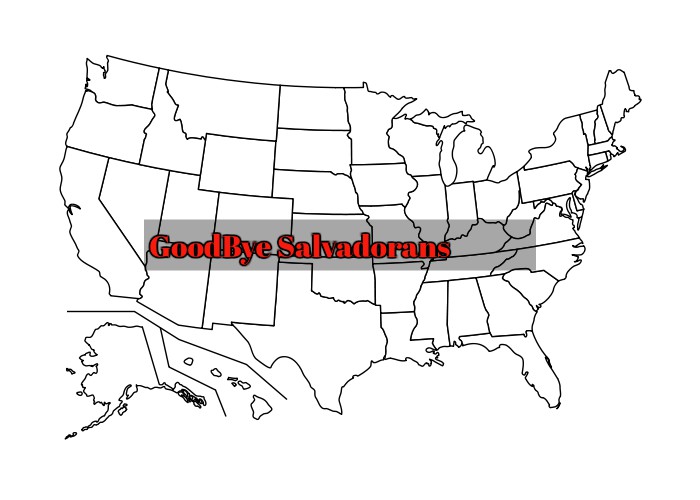Goodbye, Salvadorans
A person’s home country is something that most hold near and dear to their hearts. For the nearly 200,000 Salvadorans, that is no longer the case. In 2001, after a major earthquake devastated El Salvador, (an already war torn country) the United States granted 200,000 Salvadorans Temporary Protected Status.
The Secretary of Homeland decides if residents of a country are eligible for “Temporary Protected Status” or TPS. In order to qualify for TPS, the country can either be too dangerous for the refugees to return or the nation can not handle the return of these refugees. According to the U.S Citizen and Immigration Services, TPS beneficiaries can not be deported, but they can be granted a work visa and can be granted travel authorization.
TPS is not a road to permanent residence or legal citizenship. It is a temporary solution to a very permanent problem. The status of each country is reviewed every year and can be renewed or dropped. El Salvador’s TPS status had been renewed every year since 2001.
Salvadorans have two options: Either leave the country and go back to a country that does not have the economy to support them, or they can stay here illegally, lose their work visa, and always fear Immigration Services.
Many Salvadorans work and have families. They think of the US as their home. According to New York Times, many people have nothing to go back to in El Salvador. Whole families moved to the US and now there are generations of them who are American born and raised. In the United States, children of an illegal immigrant have to be 21 to sponsor their parents for a visa if they are born in the United States.
A copious amount of families are having to make a very difficult decision. There are 192,700 American children born to Salvadorans that are under TPS protection. Salvadorans have three choices. One choice is to take their American born children to El Salvador with them. The second choice is to leave the children in the hands of a family member or a close friend that lives in the United States. The third choice is to risk deportation and stay in the country illegally. This decision by the Department of Homeland Security will affect the United States economy. Nearly 88 percent of the 200,000 Salvadoran immigrants are in the labor force and nearly one quarter of them have a mortgage. Many have been here for 10 or even 20 plus years.
El Salvador is one of the most dangerous South American countries, especially for women and girls according to Newsweek. The gangs “MS-13” and the “Barrio 18” operate in El Salvador and in other South American countries. They use rape as an intimidation tactic and to mark women and girls as gang property. Theses gangs are considered as two of the most violent gangs in the world. El Salvador has one of the highest rates of vicious homicides of women.
Salvadorans have until September 9, 2019 to obtain legal citizenship or leave the country. This decision to end Temporary Protected Status for Salvadorans is not the first decision that has affected thousands of lives. It will not be the last either. Many countries are under review by the Department of Homeland Security to see whether or not they are fit for TPS.



